Introduction
The allure of vinyl records will never fade, especially in today's digital music landscape. Many music lovers and audiophiles have rediscovered the turntable as a nostalgic sound experience. However, with the wide variety of turntable brands and models on the market, choosing the right device for your needs has become increasingly challenging.
In this article, we'll explore how to choose a turntable that's right for you, focusing on aspects like sound quality, design, and sound system compatibility. Whether you're just getting started or a seasoned vinyl enthusiast, we'll provide expert guidance to help you make the best choice.
H2: Essential Factors in Turntable Selection: Sound Quality, Design, and Compatibility
When choosing a turntable, several key factors are essential: sound quality, design, and sound system compatibility. Understanding how these factors interact will help you make a more informed decision.
- Sound Quality: Since a turntable's primary purpose is to play music, sound quality is one of the most critical considerations. The turntable's design and materials, the quality of its stylus, and the internal circuit boards all affect its sound quality.
- Design: Design isn't just about appearance; it also encompasses build materials, stability, and operating comfort. High-end turntables often use high-quality materials like acrylic or wood, which not only enhances the sound quality but also the visual appeal of the turntable.
- Compatibility: A turntable's compatibility is crucial, especially its compatibility with your existing audio equipment and speaker system. For example, many modern turntables offer Bluetooth, but for users of traditional audio systems, RCA connections and a built-in phono stage are essential.
Now that we know the basics, we'll delve deeper into how each aspect impacts your choice.
H2: Sound Quality Enhancement: How to Choose a High-Fidelity Turntable
Sound quality is undoubtedly the most important aspect for every vinyl enthusiast. To ensure the best possible sound experience, choosing a high-fidelity turntable is crucial. Here are some key factors to consider when choosing a high-quality turntable:
- Speed Control: Common speeds for vinyl records are 33 1/3 and 45 RPM. Ensuring your turntable supports both speeds ensures excellent playback for different record types. Stylus and Tonearm: The quality of the stylus directly impacts sound quality. A high-quality stylus can more accurately detect subtle vibrations on the vinyl surface, preventing distortion. The design and material of the tonearm also impact sound quality.
- Turntable Material: High-end materials such as clear acrylic can reduce vibration and provide clearer sound quality. The choice of material not only affects sound quality but also the durability and stability of the device.
- Stability: Turntable stability is crucial. The turntable must rotate smoothly to ensure accurate music playback. An unstable turntable can cause distortion or discontinuity in the sound quality.
H2: Turntable Design: Balancing Form and Function
While sound quality is undoubtedly the most important factor, the design of the turntable is equally important. With advancements in technology and craftsmanship, modern turntables are more than just playback devices; they are also works of art, adding a unique touch to your home. Here are some design factors to consider when choosing:
- Appearance and Material Selection: High-end turntables are often made of clear acrylic, wood, or metal. These materials not only enhance the turntable's appearance but also reduce resonance and improve sound quality.
- Size and Space Compatibility: When choosing a turntable, consider whether the device's dimensions will fit your space. If space is limited, opt for a more compact turntable for easy placement.
- User Interface: Modern turntables often feature digital interfaces, simplifying the tedious process of traditional manual operation. Well-designed button layouts and easy-to-use functions enhance the user experience.
- Additional Features: Some high-end turntables feature built-in phono stages and even Bluetooth connectivity, allowing you to play traditional vinyl records with modern sound systems for a more convenient experience.
H2: Turntable and Sound System Compatibility: Ensuring Seamless Integration
A turntable isn't a standalone device; it typically works in conjunction with a sound system, speakers, and other accessories. Therefore, ensuring compatibility with your existing sound system is crucial.
- Sound System Connectivity: Most modern sound systems support RCA connections, but if your sound system supports Bluetooth, choosing a turntable with Bluetooth functionality will be even more convenient. Bluetooth turntables can seamlessly pair with Bluetooth-enabled speakers, enhancing the user experience.
- Built-in Phono Stage: Many high-end turntables already have a built-in phono stage, meaning you don't need to purchase and connect an external phono stage separately. This is particularly helpful for new users, simplifying setup.
- Power and Speaker Compatibility: Ensure the turntable's output power is suitable for your sound system. Choosing a device that matches your system's power output can avoid sound distortion or damage to your speakers.
- Additional Accessories Required: Some turntables require additional accessories to function properly, such as an external phono stage or ground cable. Ensure your chosen turntable comes with all the necessary accessories to avoid the hassle of purchasing them later.
H2: Bluetooth Turntable: The Convenience of Wireless Connection and Guaranteed Sound Quality
Bluetooth turntables are becoming a popular choice for many vinyl enthusiasts. They seamlessly combine traditional vinyl playback with the convenience of modern sound systems. Here are the advantages and considerations of Bluetooth turntables:
- The Convenience of Wireless Playback: Bluetooth turntables allow users to stream music directly to compatible Bluetooth speakers without the hassle of connecting cables. This is a very convenient feature for modern home users.
- Sound Quality Assurance: While Bluetooth offers wireless convenience, some users worry about potential compression issues. High-quality Bluetooth turntables can still maintain high-fidelity sound quality, ensuring that every detail of your music is fully captured.
- Compatibility and Selection: When choosing a Bluetooth turntable, ensure it is compatible with your existing audio equipment. For example, some turntables support older Bluetooth devices, while others support the latest Bluetooth 5.0 and above.
H2: Common Questions and Turntable Selection Tips
When choosing a turntable, many users may have different questions, especially those who are new to vinyl records. Here are 10 common questions and their answers to help you better understand how to choose the best turntable for you:
1. What is the difference between manual and automatic turntables?
Answer:
The main difference between manual and automatic turntables is the operation method. Manual turntables require the user to manually place and remove the tonearm from the record, offering a greater sense of control and sound quality advantages because there is no additional mechanical system to interfere with. Automatic turntables automatically position the tonearm on the record and stop when you start them, making them ideal for those who prefer ease of use.
Pros: Manual turntables generally offer higher sound quality but require more skill to operate.
Pros: Automatic turntables are easier to use and are suitable for beginners or those who prefer less manual operation.
2. Does a turntable require additional audio equipment?
Answer:
This depends on whether your turntable has a built-in phono stage. Some high-end turntables already have one, meaning you don't need to purchase additional equipment; you can simply connect the turntable directly to your audio system. If your turntable doesn't have a built-in phono stage, you'll need an external phono stage to process the signal.
Recommendation: Choose a turntable with a built-in phono stage to reduce hassle, especially for beginners.
3. Is there a significant difference in sound quality between a Bluetooth turntable and a traditional turntable?
A:
Bluetooth turntables offer a convenient wireless connection, but the sound quality may be somewhat compressed compared to a wired connection, especially on lower-quality Bluetooth devices. Nevertheless, high-end Bluetooth turntables can still offer very close to wired sound quality, especially those that support the latest Bluetooth technologies (such as aptX and AAC).
Recommendation: If you prioritize sound quality and don't mind a wired connection, a traditional wired turntable may offer better sound. If convenience is more important, a Bluetooth turntable is a good choice.
4. How do I know if my audio system is compatible with my turntable?
A:
Most modern audio systems are compatible with turntables via RCA connections; you just need to confirm whether the system has RCA inputs. If your audio system supports Bluetooth or other wireless features, you can also choose a Bluetooth-enabled turntable.
Recommendation: Before purchasing, check whether your audio system has the appropriate inputs, or choose a turntable that supports Bluetooth for increased compatibility.
5. How much does the material of the turntable affect the sound quality?
A:
The material of the turntable has a crucial impact on sound quality. High-end materials (such as clear acrylic, aluminum alloy, and solid wood) can reduce unwanted vibrations, thereby improving sound clarity and stability. For example, acrylic has excellent vibration absorption, effectively reducing resonance, resulting in purer sound quality.
Recommendation: Choosing a turntable made of high-quality materials will ensure higher sound quality, especially in low frequencies and detail.
6. How does the speed of the turntable affect sound quality?
A:
Standard turntables typically support two speeds: 33 1/3 and 45 RPM, depending on the type of record. 33 1/3 RPM is the standard speed for most LP records, while 45 RPM is typically used for singles or records that require higher fidelity sound quality.
Recommendation: Make sure your turntable supports both speeds to ensure compatibility with a wide range of record types. A high-quality turntable will provide precise speed control to avoid sound distortion.
7. How can I choose a turntable that fits my space?
A:
Turntable sizes vary widely, and the right one depends on the size of your space. If you have a small desktop or display area, consider a compact turntable, which is typically more compact but still offers the same sound quality as a larger model.
Recommendation: If space is limited, choose a turntable with a compact design, but ensure it doesn't compromise on sound quality.
8. How does the quality of a turntable's stylus affect sound quality?
A:
The stylus is a critical component of a turntable's sound quality, directly affecting the nuance and accuracy of the sound. A high-quality stylus can better capture the fine details of the vinyl, reducing distortion.
Recommendation: Choose a turntable with a high-quality stylus, especially one with a diamond tip. This provides clearer sound and a longer lifespan.
9. What advice do you have for beginners when choosing a turntable?
A:
For beginners, it's important to choose a turntable that's easy to operate and fully functional. Many beginners tend to choose an automatic turntable or one with a built-in phono stage, which simplifies their equipment setup.
Recommendation: Choose a turntable with automatic functions and a built-in phono stage, avoiding overly complex manual models. Also, ensure it's compatible with your existing sound system.
10. Do turntables require regular maintenance?
Answer:
Yes, turntables do require regular maintenance. Regularly cleaning the stylus, records, and platter can effectively prevent dust and debris from affecting the sound quality. Additionally, checking the stylus for wear and replacing any worn ones promptly will ensure optimal music playback.
Recommendation: Regularly clean and inspect your turntable to ensure it's always in top working condition.
Conclusion
Choosing the right turntable isn't just about purchasing a playback device; it's about enhancing your musical experience. By considering factors like sound quality, design, and compatibility, you'll be able to find the turntable that best suits your needs. Whether you're an audiophile seeking high-fidelity sound or a beginner, choosing the right turntable will provide you with unparalleled listening enjoyment.
Remember, choosing the right turntable isn't just about the product itself; it's also about integrating it with your sound system to achieve the best possible musical effect. I hope this article provides valuable guidance for your purchasing decision.



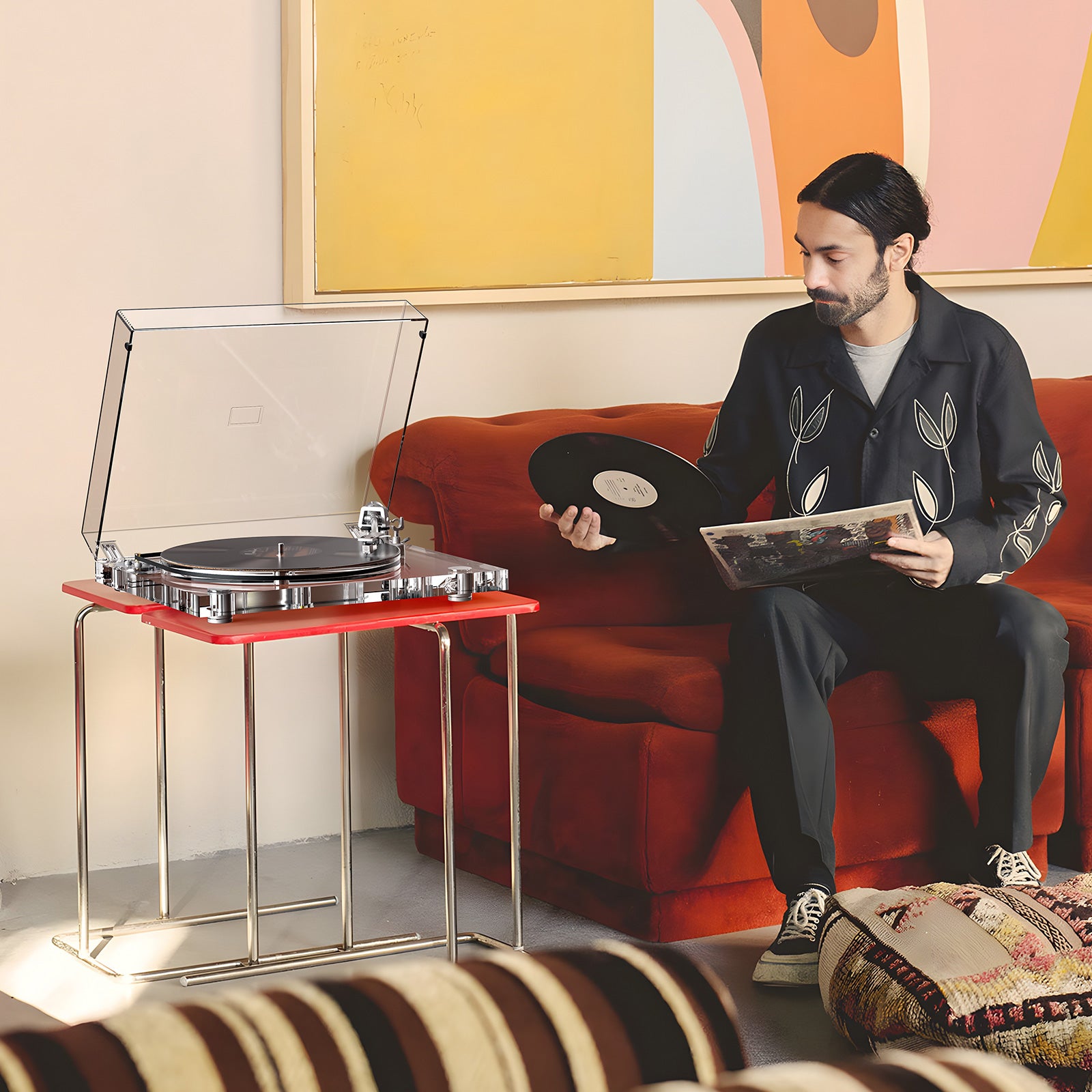
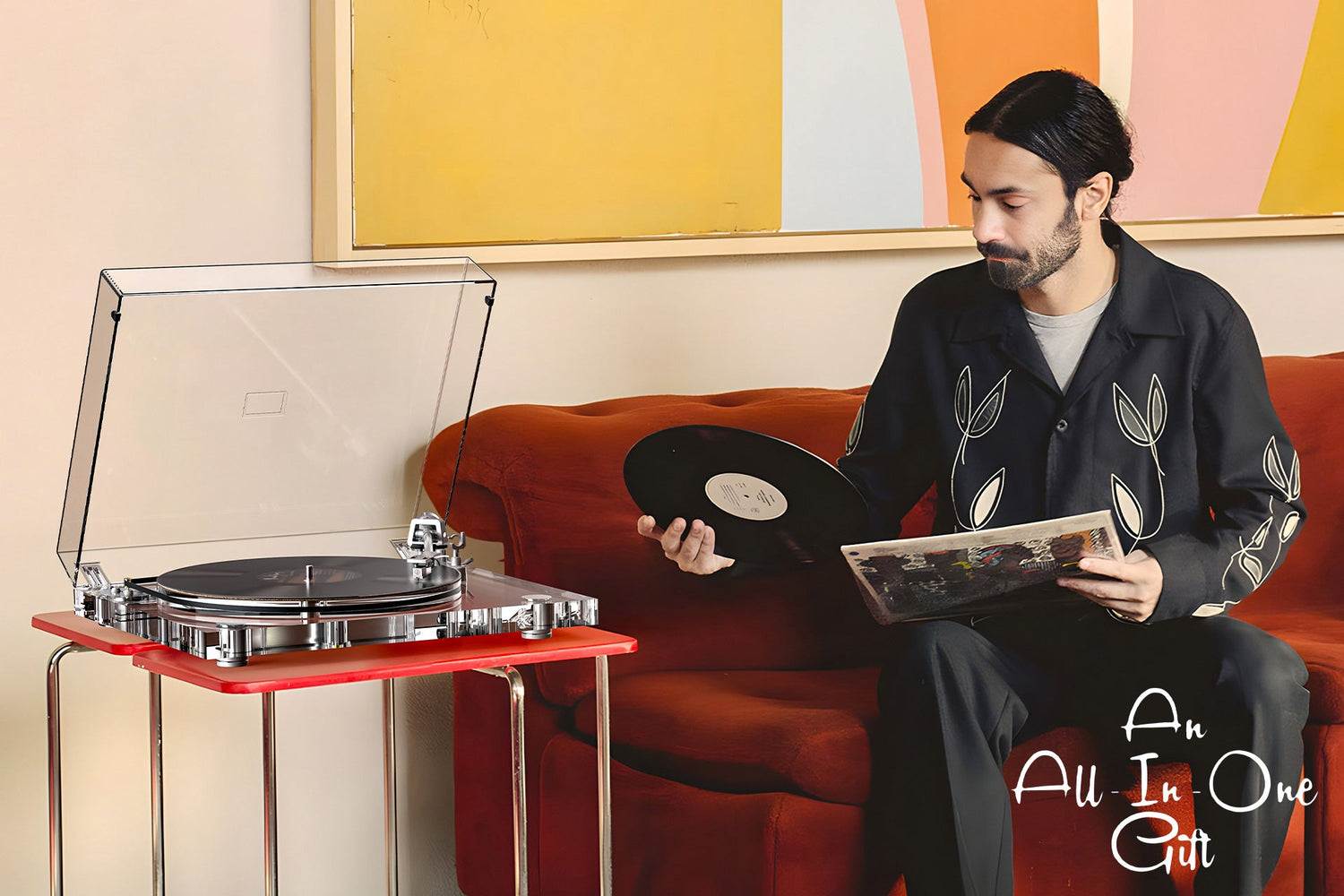
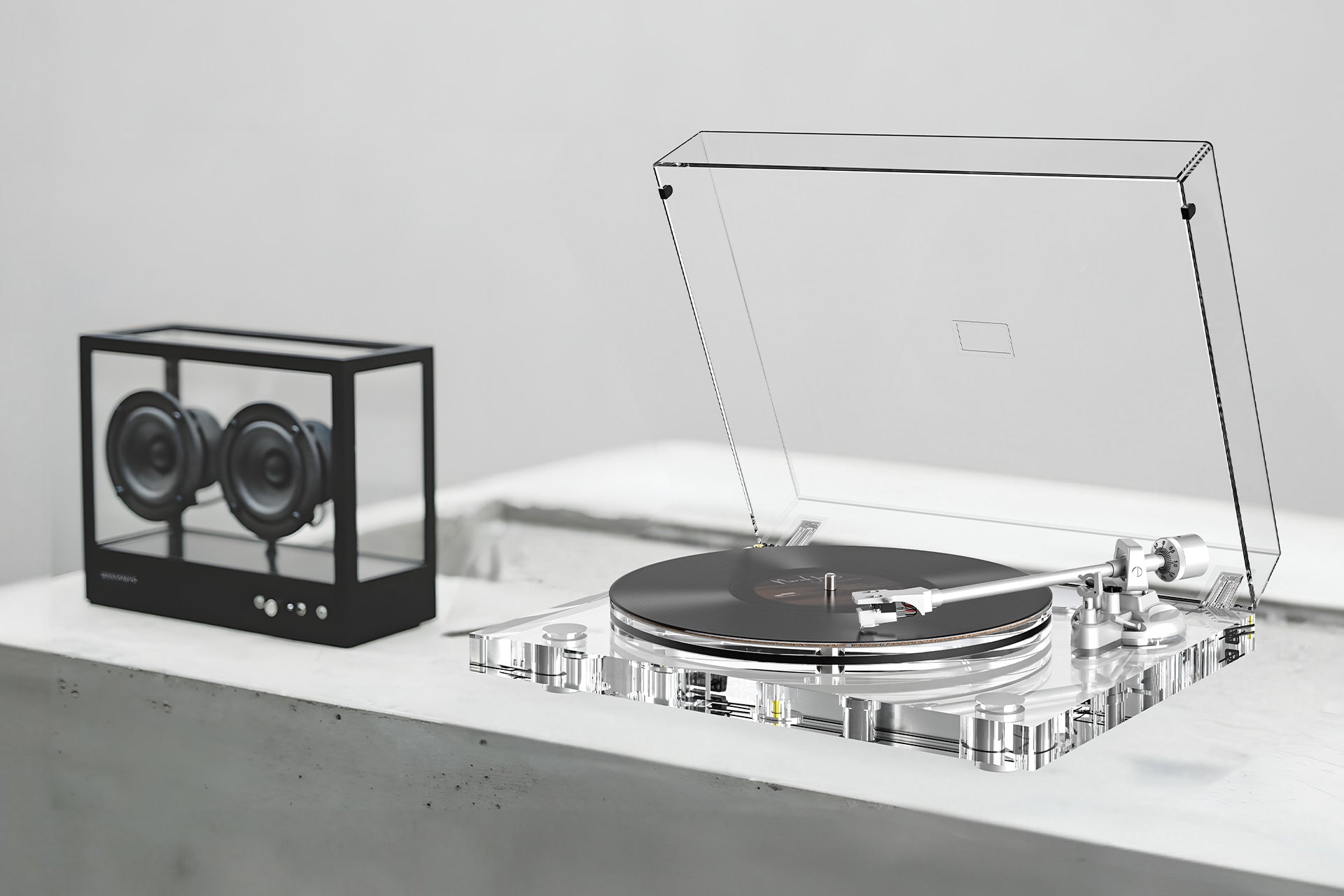
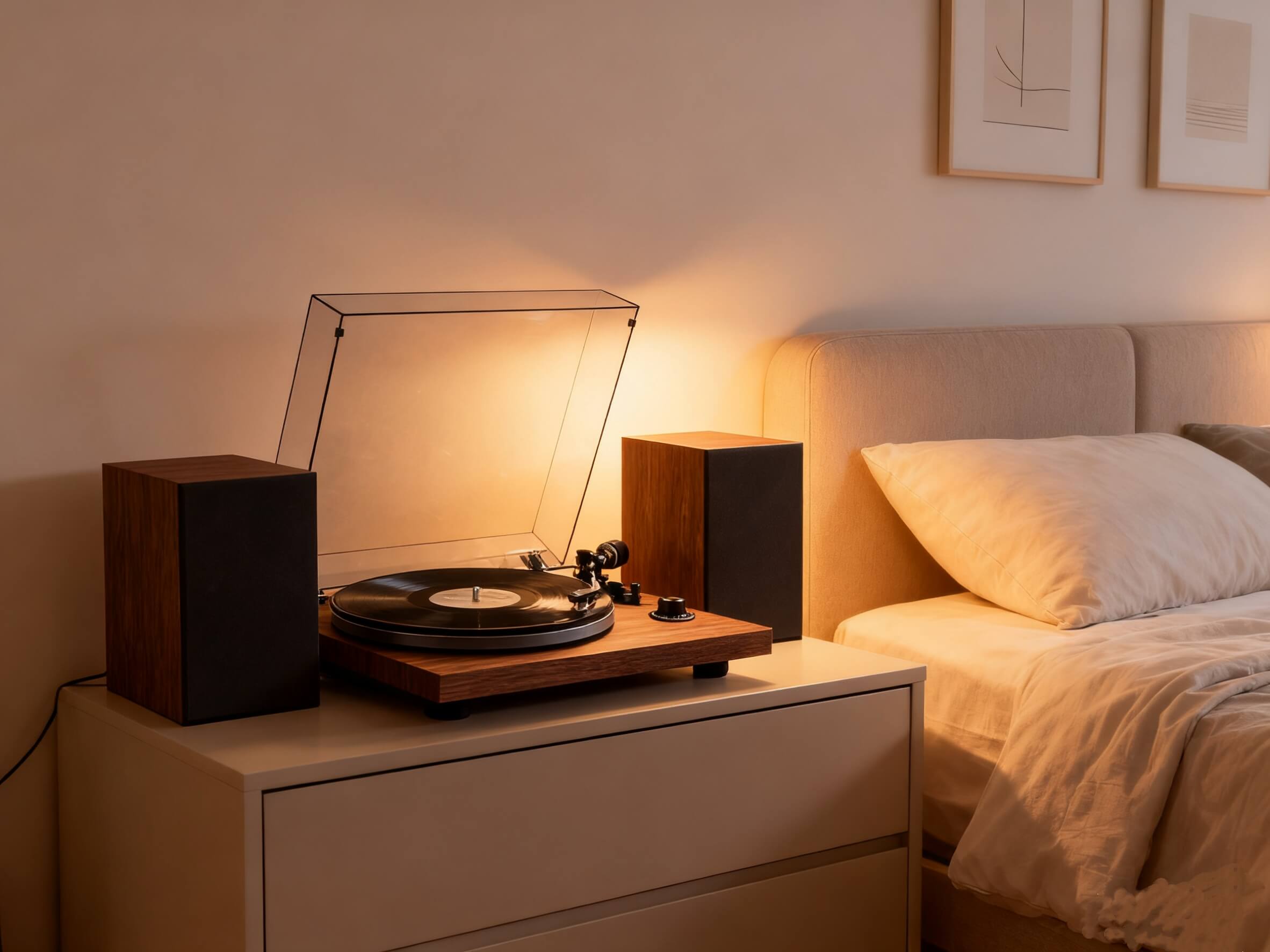




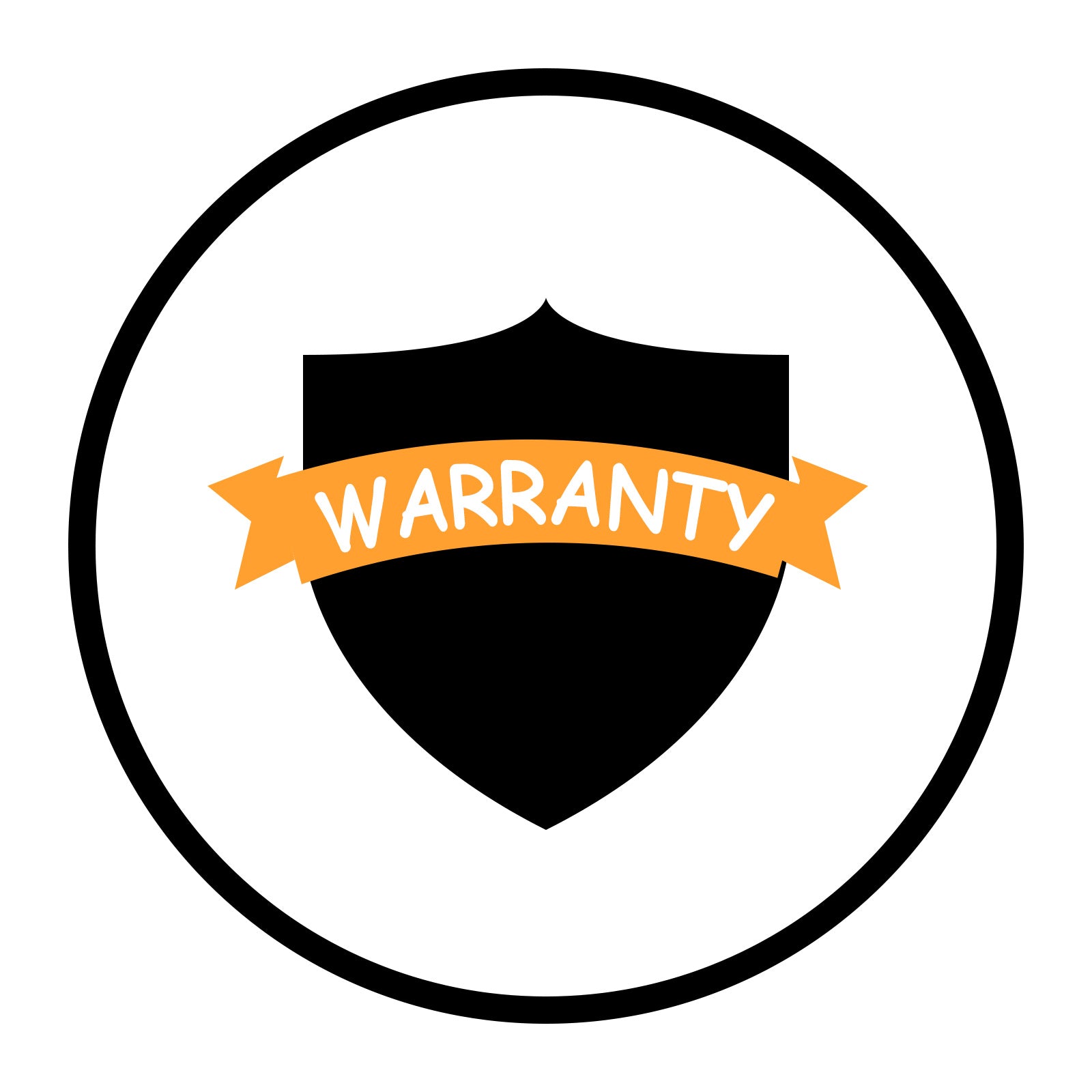
Leave a comment
All comments are moderated before being published.
This site is protected by hCaptcha and the hCaptcha Privacy Policy and Terms of Service apply.